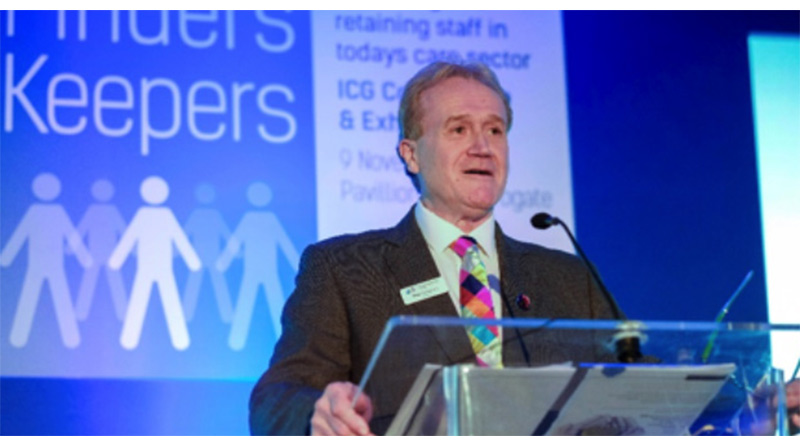Mixed Reaction To Changes In Overseas Recruitment
CARE providers have given a mixed reaction to new proposals designed to cut immigration, announced this afternoon.
The care provider organisation, The Independent Care Group (ICG) said stopping overseas care workers from bringing dependents with them would deter those workers from coming.
But the ICG did welcome news that the sector would be exempt from the increase in the minimum pay for people coming into the country from £26,200 to £38,700 which would have made it harder to recruit.
ICG Chair Mike Padgham said:
“The banning of dependents is bound to deter many from coming to work for social care providers in this country, which is a blow.
“There is no doubt that will reduce the numbers we can recruit at a time when we need those overseas staff to help us deliver care whilst we have 152,000 vacancies in the sector.
“Exempting health and social care from the minimum pay threshold will help and we also welcome the clarification on the 20% pay reduction and the fact that to obtain a sponsor licence, providers need to be regulated by the Care Quality Commission.
“Overall though we continue to be dismayed by the Government’s approach to social care staffing. Whilst on the one hand it is looking to reduce the sector’s reliance on overseas workers it is not doing anything on the other hand to help us recruit more from this country.
“We need to see a proper workforce strategy that brings sufficient funding into social care that makes it an attractive place to work compared to other sectors and aids the sector to recruit the levels of staff we need.
“At the moment many providers would not be able to fill their shifts without their overseas staff, who we should be welcoming with open arms. Instead, today we are putting measures in place to cut that lifeline without having an alternative in place to provide us with the staff we need and that doesn’t make any sense at all.”
Mr Padgham warned that reducing overseas recruits was bound to have an impact upon social care delivery.
And he added: “Inevitably this will have a detrimental impact on the provision of care, adding to the 1.5m who currently can’t get the care they need. And by reducing available community care, the Government will undoubtedly increase the number of people who cannot be discharged from hospital, also contributing to rising hospital waiting lists.”
The ICG says long standing underfunding of the sector, compounded by the Covid-19 pandemic, has left the sector in its worst ever staffing crisis.
“Social care provision is on its knees,” Mr Padgham added. “The last thing we need is tinkering with the lifeline of overseas workers that we have been thrown.
“Damaging social care provision goes against the Government’s desire to cut delayed discharges and reduce waiting lists.
“We need that workforce strategy. We need to reform social care and give the sector parity with the NHS. We need to give social care workers the pay, terms and conditions they deserve and that match those of their counterparts at the NHS. Then we might see a reduction in the workforce shortage that is threatening proper, safe care delivery.”






